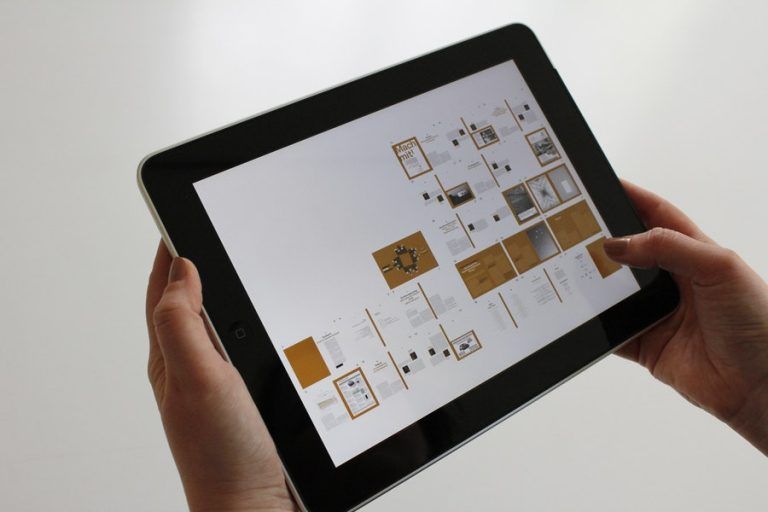Are Poles enthusiastic about new technologies?

Wpis dostępny jest także w języku:
![]() polski
polski
Almost all respondents positively assess the impact of new technologies on everyday life – this is one of the conclusions of the latest PAYBACK Opinion Poll.
Poles on the lookout for new technologies
The results leave no doubt: as many as 95% of those surveyed believe that modern technologies make life easier and have a positive impact on everyday activities. Moreover, 94% of respondents said that innovations in this field are a necessary condition for the development of the economy.
Poles try to keep their finger on the pulse of the latest trends. When asked “Do you follow technological novelties?” half of the respondents (51%) admitted that from time to time they explore this topic. Alongside them, there is a large group of people (42%) who try to keep up to date with any news on the subject; innovations more often occupy men than women (a difference of 18%). Only 7% of respondents are not interested at all in what is happening in the world of new technologies.
Social applications… and more
Which technologies can be considered the most important? Mobile applications, available on smartphones and tablets, certainly claim this status. Social networking is leading the pack: 61% of respondents use social networking apps on a daily basis. In second place are financial applications, mainly banking ones (55%). Almost as many people (50%) regularly use shopping applications, such as PAYBACK.
– Our survey confirmed that Poles like and are open to new technologies – comments Katarzyna Grzywaczewska, Marketing Director at PAYBACK Polska. – We willingly use mobile applications, including shopping applications. Time saving, convenience, points bonuses earned on everyday purchases, as well as the review of the most attractive offers in one place – all this makes the applications more and more often present in our smartphones.
Other app categories are much less popular. 1/4 of respondents regularly use navigation in a smartphone or tablet, and 15% of respondents use them to check the weather forecast. Almost as many people work out with a mobile device in hand: sports and health apps are installed by 14% of respondents. One in 10 people also use a dedicated app to check current information, news and events.
Cashless Poles
According to market analysts, cashless payments are one of the pillars of the digital revolution. Therefore, we checked how our respondents approach this issue.
What draws attention is the growing popularity of cashless transactions. During stationary shopping only 19% of respondents prefer traditional cash. Payment card is the king, chosen most often by 61% of respondents. The runner-up title went to payments via mobile applications such as BLIK or Google Pay (20%).
The benefits that Poles see in mobile payments are primarily convenience, as indicated by three quarters of respondents, as well as more precise control over spending and security (8% each).
Among those who do not use mobile payments, the majority cited the choice of another form of payment: a payment card (61%) or cash (17%) as the reason. In addition, 16% say they do not trust mobile payments enough to use them on a daily basis.
New technologies and shopping: how do we buy, what do we expect?
The average Pole owns 2-3 mobile devices (57%), and buying new equipment is not only a necessity, but also a pleasant (43%) or even exciting (15%) experience.
We most often change our smartphone every 2 or 3 years (33% and 30% respectively) – this period coincides with the most popular contract length with mobile operators. 19% of respondents take a practical approach and replace their smartphone when it starts to fail.
When choosing a new mobile phone, we pay attention primarily to technical parameters (68%) and price (48%). For 15% of respondents the operating system is also an important criterion, and for 12% – ease of use. 11% of respondents are guided primarily by the opinions of other users. The appearance and aesthetics of the product is key when choosing a new smartphone for every tenth survey participant.
We also checked what technological novelties Polish consumers dream about. 28% of respondents would like to have a robot helping with everyday household chores under their roof. 26% of votes were collected for unmanned shops and autonomous vehicles.
Less popular were such ideas as online voting in elections (18%), biometric payments (16%) or delivery by drone (14%). One in five Poles (19%) is open to implants to monitor health, but only 3% would undergo a procedure carried out by a robot. Equally few (4%) would like to see meat grown in a laboratory on their plate.
Digital distrust?
However, 17% of all respondents said they would not use any of the above innovations. Despite the enthusiasm for modern technology, some of the responses indicated a certain distrust with which some of us approach digital transformation.
Although the majority of respondents (69%) see technological developments as beneficial, almost one in four respondents fear the consequences associated with them. Moreover, 59% of respondents are of the opinion that new technologies are not completely safe.
63% of Poles agree with the statement that companies design their products and services with the benefits of users in mind. At the other extreme (23%) are those who believe their intention is solely to maximise their own profits.
At the same time, we are aware of the value of the data we share with external parties. As many as 61% of respondents pay attention to data security when installing new software, while 34% of respondents admit that they do it only sometimes. 5% of respondents do not attach any importance to it at all.
This survey was conducted on PAYBACK Programme participants between 09-16 February 2021 using an online survey method on a group of 436 people. The research group aged 18-65 was selected to match the demographic structure of the country.







